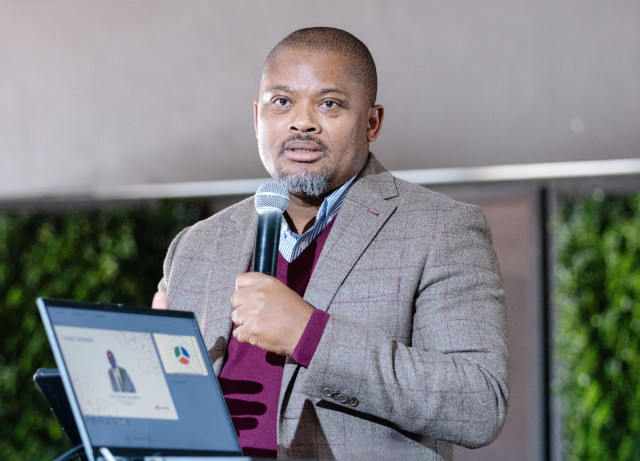Huawei Editors Xchange highlights digital ecosystems as key to South Africa’s growth
By Staff Writer 13 June 2025 | Categories: news
Huawei’s annual Editors Xchange, held in Johannesburg under the theme “Ecosystems That Scale the Future,” brought together delegates from government, business and technology. Now in its sixth iteration, the Editors Xchange explored how intelligent, integrated platforms are shaping South Africa’s digital future.
The event emphasised a shift in perspective: infrastructure is no longer just hardware, it’s becoming the enabler of inclusive development, powered by cloud computing, artificial intelligence and collaborative platforms.
In his opening remarks, Charles Cheng, deputy CEO of Huawei South Africa, underscored the human-centred purpose of digital transformation. “Digital ecosystems matter insofar as they enable a better, more fulfilling life,” Cheng said. “They must be interconnected, adaptive and built to scale.” He reaffirmed Huawei’s commitment to this vision through secure, scalable cloud services, intelligent networks and also AI platforms built for trust and interoperability.
This vision was brought to life through a keynote address by Diego Han, director of Eco-System Development at Huawei Cloud Sub-Saharan Africa. Han showcased a compelling case from Inner Mongolia’s Yimin open-pit coal mine, where 100 autonomous electric mining trucks operate via an intelligent ecosystem that integrates 5G, cloud and AI technologies.
“This is the point at which infrastructure starts to think,” Han said. “Sensors, platforms and processing power all converge to enable intelligent decision-making across the value chain, without human drivers, with enhanced safety and efficiency.”
Han elaborated on Huawei’s “Everything as a Service” approach, which moves beyond mere connectivity to co-creating intelligent, scalable platforms with partners. He pointed out that Huawei’s decision to run its own public cloud was key to building the transformation expertise it now shares globally. According to Han, this model could modernise South Africa’s mining sector and accelerate the country’s digital economy.

Professor Busani Ngcaweni, Principal of the National School of Government
From the public sector, Professor Busani Ngcaweni, principal of the National School of Government, addressed the complexity of digital transformation in state institutions. He argued that genuine change depends on thoughtful decision-making that prioritises public value.
“In government, we are not just procuring hardware or software. We are investing in what I call brainware - the culture, skills and leadership needed to use technology wisely,” Ngcaweni said.
He highlighted the tension between adopting new technologies and the capacity to use them effectively, citing South Africa’s pandemic-era rollout of social relief grants as a breakthrough driven not by new tools, but by strategic use of existing USSD platforms.
“The clarity of the decision is what made the breakthrough possible,” he explained. He cautioned that, “Too often, we invest in solutions misaligned with our needs. True transformation is driven by insight and public purpose.” For digital ecosystems to truly transform governance, they must be accessible and user-friendly to the citizens they serve, he believes.
Also speaking at the event was Tania Joffe, principal and founder of Unu Health, who reinforced the importance of access and practical application. Her company uses AI to expand healthcare access in underserved areas, through mobile technologies that conduct facial scans to measure blood pressure, oxygen levels and pulse, and diagnostic tools powered by AI.
“There is no business that will be untouched by the shifts taking place now,” Joffe notes. She stressed that bridging the gap in South Africa’s two-tier healthcare system relies not only on smart algorithms, but also on connectivity, smartphone access, and public trust in digital platforms.
Comparing future healthcare to vehicle diagnostics, she noted: “We expect clear, data-led answers when servicing a car, why not in healthcare? We already have the tools, data, and intelligence to start making that a reality.” She shared how Large Language Models (LLMs) are being used to create digital twins of target demographics, offering insights into unmet patient needs.
Still, Joffe warned that infrastructure and responsibility must go hand in hand. “This is a moment of real possibility, but only if we’re intentional about building systems that protect data, empower people and deliver equitable care at scale.”
The 2025 Huawei Editors Xchange reaffirmed a growing consensus: the future of digital ecosystems will not be built by technology alone, but through partnership, thoughtful design and a shared commitment to a more inclusive and connected society.
Most Read Articles

Have Your Say
What new tech or developments are you most anticipating this year?



